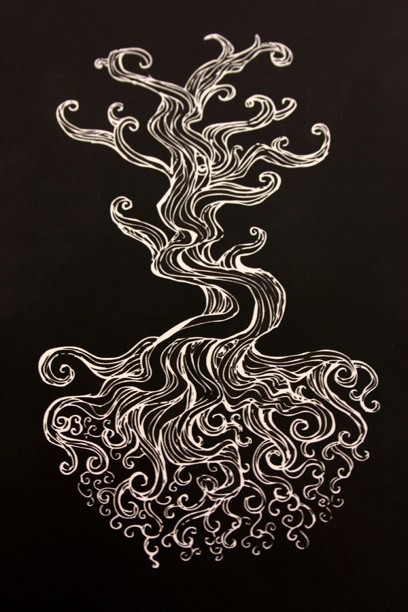No matter how young or old, everyone needs to be reminded of the value of virtue now and then.
This simple but powerful sentiment is the premise behind the new book “Tea Leaves” by author Andrew Sandner and illustrator Victoria Hollins. Sandner, a UA creative writing almnus, said most people understand “Tea Leaves” as a book of virtues, as it is a text comprised of 50 aphorisms, each about two to five sentences in length.
Each aphorism, preceded by headings such as “Adapt” or “Fight a Clean Fight,” offers a meditation on a different life issue.
“It started off as a children’s book to empower kids and give them confidence with all this bully stuff that’s been in the news,” Sandner said.
Ultimately, though, “Tea Leaves” reads more like an endearingly sincere survival guide, offering general tips about self-reliance and time management that would resonate with any age group.
“It turned into a book on prosperity,” Sandner said.
The terse sentences that accompany each theme carry a kind of whimsy that is all their own. Sandner has a knack for simple, effective sentences that can carry a good deal of weight, depending on the subject.
For exmaple, in the section called “Persist When Battered,” Sander writes, “The man who quits when thrown off course watches others finish,” effortlessly conveying his sense of virtue.
At times, however, he seems to have difficulty translating his ideas into words; there are occasional clunky lines like, “Such braggarts drip self-doubt.” This kind of writing ultimately feels out of place in the generally fantastical and approachable world of “Tea Leaves,” and thankfully Sandner keeps it to a minimum.
On the other hand, Sander’s imagery is flawless, such as in the pleasant line, “Ideas are flint for bonfires. Ambition is the fuel.” When Sandner grounds his more esoteric concepts in objects and earthly sensations, the true power of his words rises to the surface.
Hollins’ contributions also help to convey Sandner’s sincerity. For an amateur artist still in school at the Southwest Universiy of Visual Arts, Hollins brings a remarkably self-assured style to “Tea Leaves” that reflects Sandner’s ethical musings through black-and-white pencil drawings.
Although at times Hollins’ striking figures threaten to distract from the words on the other side of the page, Hollins’ most effective sketches feel like organic continuations of Sandner’s prose.
Perhaps the greatest strength of “Tea Leaves” its sincerity and how clear it is that both Sandner and Hollins gave the project their all.
Taking inspiration for the project from “The Art of Worldly Wisdom” by Balthasar Gracian, Sandner wrote, designed, edited and published the book independently, by his own set of practices.
His dedication seems to have paid off, as even with a few weaker moments, “Tea Leaves” is still a journey worth taking.
Appropriate for all ages (though a sharp and critical mind is a must), “Tea Leaves” will make an appearance at the Tucson Festival of Books as Sandner promotes between vendor booths.









